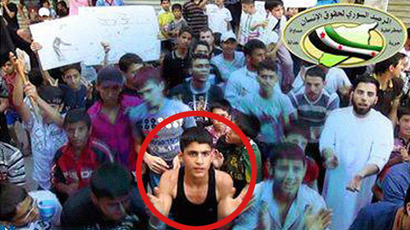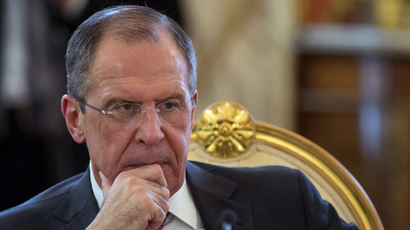UN: 5,000 people die in Syria a month, conflict is deteriorating
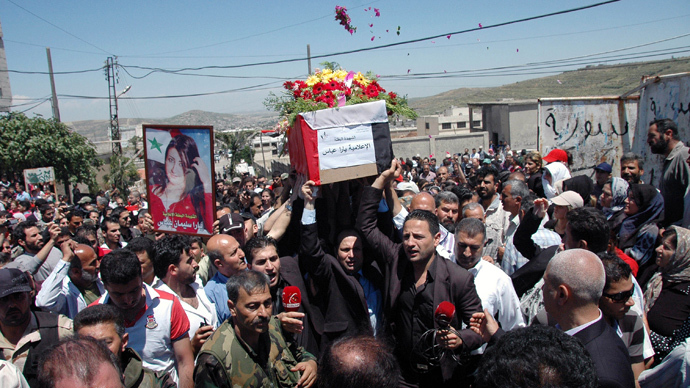
The Syrian conflict is “drastically deteriorating” with up to 5,000 people a month dying and the total death toll reaching 100,000 people, in over two years, the UN reported. But Syria argues the figures are “unprofessionally sourced.”
Between March 2011 and the end of April 2013 at least 92,901
people were killed in Syria, according to UN Assistant
Secretary-General for Human Rights Ivan Simonovic. More than
6,500 of them were children. The current civilian death toll now
stands at "up to 100,000 people," said Secretary-General
of the UN Ban Ki-moon.
During 26 months of conflict Syria has seen the largest exodus in
the past 20 years. The official number is nearly 1,8 million
people now registered with the UN in countries around Syria. An
average of 6,000 people a day fleeing the country, UN High
Commissioner for Refugees Antonio Guterres said.
"We have not seen a refugee outflow escalate at such a frightening rate since the Rwandan genocide almost 20 years ago," Guterres said, referring to the 1994 events when more than two million Rwandans fled the mass executions of Hutus.
Lebanon, Iraq, Jordan and other countries’ decision to accept
refugees was "saving hundreds of thousands of lives," the
Commissioner for Refugees said.
In Lebanon, a country of four million people, the UN has registered 607,908 refugees, but the government believes the real figure is likely closer to 1, 2 million, Lebanon's UN ambassador Nawaf Salam said. He said they estimate the number would grow 20-fold during 2013.

"It is as if your country, the United States of America, were going to have an influx of over 75 million refugees, or over twice the population of Canada," Salam said to US Ambassador Rosemary DiCarlo, the council president for July.
"This crisis has been going on for much longer than anyone feared with unbearable humanitarian consequences," Guterres added.
Guterres described the impact as "crushing", saying that another
160,000 are registered in Iraq, 90,000 in Egypt and 1 million in
Turkey and Jordan. The Syrian crisis is turning into "the
biggest humanitarian tragedy of the 21st century," believes
Turkey's deputy UN ambassador Leven Eler.
However, the Syrian mission has disputed the UN figures. Bashar Jaafari, Syrian ambassador to the UN, has denounced the grief statistics as "unprofessionally sourced" and criticized the use of an American company to collect data.
In response, Ivan Simonovic argued that "rigorous" methods were
used and each victim was checked by name, date and crosschecked
with at least three sources.
Humanitarian pauses, cross-border operations should be
considered
UN humanitarian chief Valerie Amos has called on the
international community to lift bureaucratic obstacles, designate
the "priority humanitarian routes" and give prior
notification of military offensives.
"The security, economic, political, social, development and
humanitarian consequences of this crisis are extremely grave and
its human impact immeasurable in terms of the long term trauma
and emotional impact on this and future generations of
Syrians," Amos told the council.
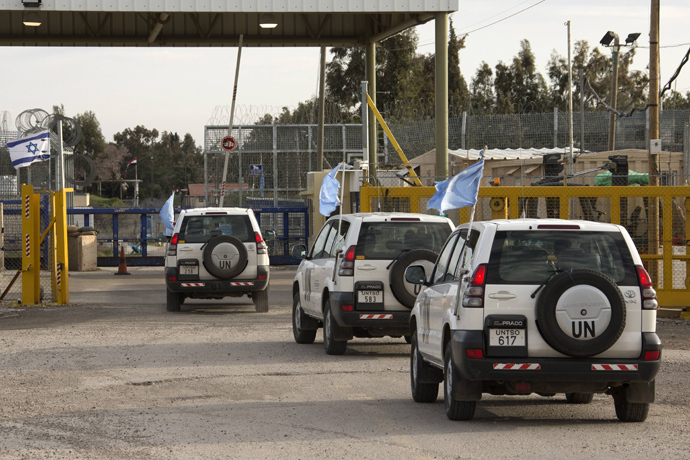
Amos estimated that 6.8 million Syrians need urgent humanitarian assistance, including more than 4.2 million internally displaced, and that almost half of those needing help were children. According to estimates, $3.1 billion is needed to help people in Syria and neighboring countries for the rest of the year.
UN aid chief said there should be "humanitarian pauses" to
allow aid access and "cross-border operations, as
appropriate." Amos added that the international community may
have to consider such option.
However, the Syrian government strongly opposes any international
cross-border operations in the rebel-controlled regions that may
eventually harm Syria’s sovereignty. At the same time Syria
allows UN convoys to deliver humanitarian aid without
restrictions through the government-controlled checkpoints. At
least 14 UN convoys delivered aid to almost a million people in
Syria’s troubled areas since the beginning of the year, Bashar
Jaafari said, adding that Syria wanted the Red Cross to send
humanitarian aid to help civilians used as “human shields”
by terrorists in Homs.
The Syrian ambassador to the UN assured his government was doing "everything possible to shoulder its responsibility and its duty to its people, to meet the humanitarian needs and the basic needs of its citizens."
No progress in Geneva peace talks
Despite the mounting suffering, the UN Security Council and the
international community remain in stalemate over Syria.
Russian president, Vladimir Putin, and his US counterpart, Barack Obama, agreed that diplomacy offers the best solution to the conflict; however the proposed Geneva peace conference has got stuck. Intended to be a follow-up to the last year’s international meeting in Geneva that drafted a peace roadmap for Syria, it was planned to take place in mid-June, but no new date has been set so far.
The opposition Syrian National Coalition rejected the option of attending a peace conference on the grounds of the rebels’ weak military position.
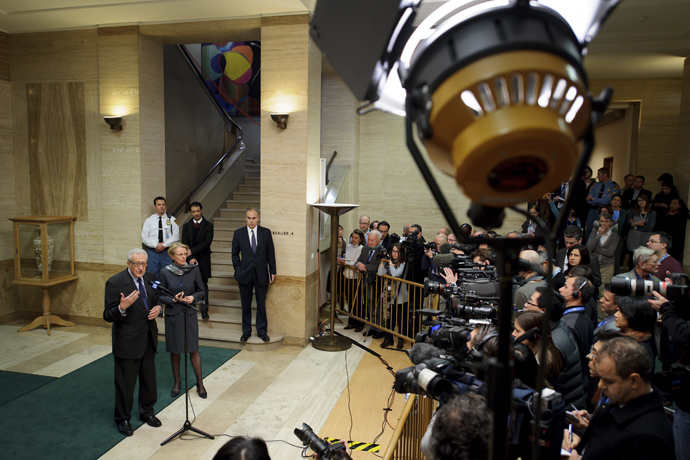
At the same time, a new wave of disputes has been sparked over
the use of chemical weapons in the conflict.
Last week Russia submitted to the UN its analysis of samples taken in Aleppo, where chemical
weapons were allegedly used in March.
The findings indicated that it was rebels - not the Syrian army - behind the Khan al-Assal incident, in which more than 30 people died. But the United States has cast doubt on the Russian analysis.
On Sunday the Syrian army discovered a storehouse belonging to
rebels in the Damascus area of Jobar, where toxic chemical
substances - including chlorine - had been produced and kept.













